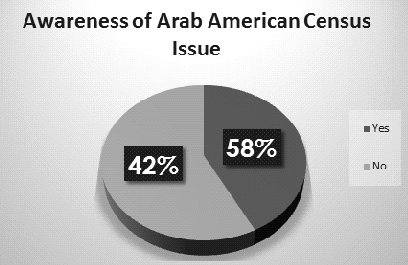White Like Me? The U.S. Census’ Lack of Cultural Diversity
Gallery

Meet Lauren Church (pictured left), 30, a Henry Ford College student born in California. Now, meet another fellow HFC student, Bash Pasha (pictured right), 17, born in Egypt. While both of these students are American citizens, the question is: are they both white?
The United States Census seems to think so.
Not only do these two students come from starkly different backgrounds and speak different languages, they are only a very small part of the melting-pot-like category that makes up the Caucasian/white demographic in the United States.
Anecdotally, an HFC student may come to the conclusion that students on campus are diverse, with a healthy mix of Arab Americans in the student population. But when looking at HFC’s Student Profile stats, Arab Americans aren’t listed-- at least not as their own racial group. In the eyes of the U.S. Census, Arab Americans are considered racially white. The Census, a decennial poll of American households that provides statistics on who U.S. citizens are, categorizes “[persons] having origins in any of the original peoples of Europe, the Middle East, or North Africa” as having a race of white.
Racially speaking, Arab Americans and those with a European heritage have very different histories in the United States; their populations have distinct backgrounds as well as diverse needs. By joining these groups together under one statistical umbrella, the Census might be doing a great disservice to the needs of these populations by discounting them all together. In a recent anonymous poll conducted of 125 people, only 42 percent of respondents said they were aware Arab Americans were accounted for in this way. When asked if they were aware of the effects a change of the Census race categorization may bring about, only a startling 44 percent were interested in the issue.
Chart illustrates the answers received in the anonymous poll
These statistics are troubling. While the issue of demographics and accurate data collections regarding race may sound dull and unimportant, having accurate data is important for many reasons. Not only is the U.S. Census used to inform the government of the details of who lives in the United States, but it also determines over $400 billion dollars in funding. Funding that contributes to scholarships, making multilingual materials available, supporting health issues that may be more prevalent in people with different ethnic backgrounds, and more. By not reporting accurately on this important part of the population, America risks under-serving a group of tax paying citizens who deserve to be taken into account.
There is a yearly effort by the U.S. Census called the American Community Survey, which takes into account respondents’ ancestry, which does include Arab Americans. But unlike the Census, this survey only takes answers from a small set of people and extrapolates on it, painting the numbers with a wide brush. The University of Michigan’s Population Studies Center says the ACS has “data quality issues.”
As it now stands, even the number of Arab Americans living in the U.S. is in dispute. The ACS’s 2013 survey estimates a population of 1.8 million. But reports from various news organizations suggest this number may fluctuate upwards of 6 million. That’s 4 million people potentially unaccounted for.
In addition to Arab Americans, people of a Latino background deal with this same issue: Hispanics are said to make up 16.7% of the United States’ population, yet on the U.S. Census Hispanics aren’t given their own category either. While the Census did add a question in 1970 to address Latino origins, the Census then cites that Hispanics, “may be of any race,” a confusing categorization to be sure. Arab Americans and Latinos now fight for similar representation.
There are suggestions of adding a category called MENA: Middle East North Africa. The Arab American Institute has been a strong proponent of this issue. This new category would allow Arab Americans to be accurately accounted for and to have the services and needs of their populations properly addressed.
“Hopefully, the 2020 Census will have MENA as an option for people like me.” Bash said, reflecting on the issue. “I can mark myself down in a group that truly represents who I am.”
Caucasian or not, we’re all American, and a Census that reports our country’s diversity should accurately represent our country’s diversity.
